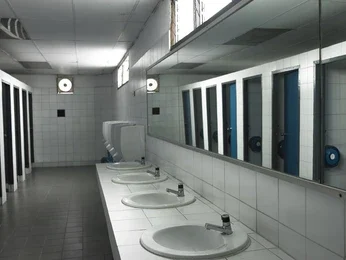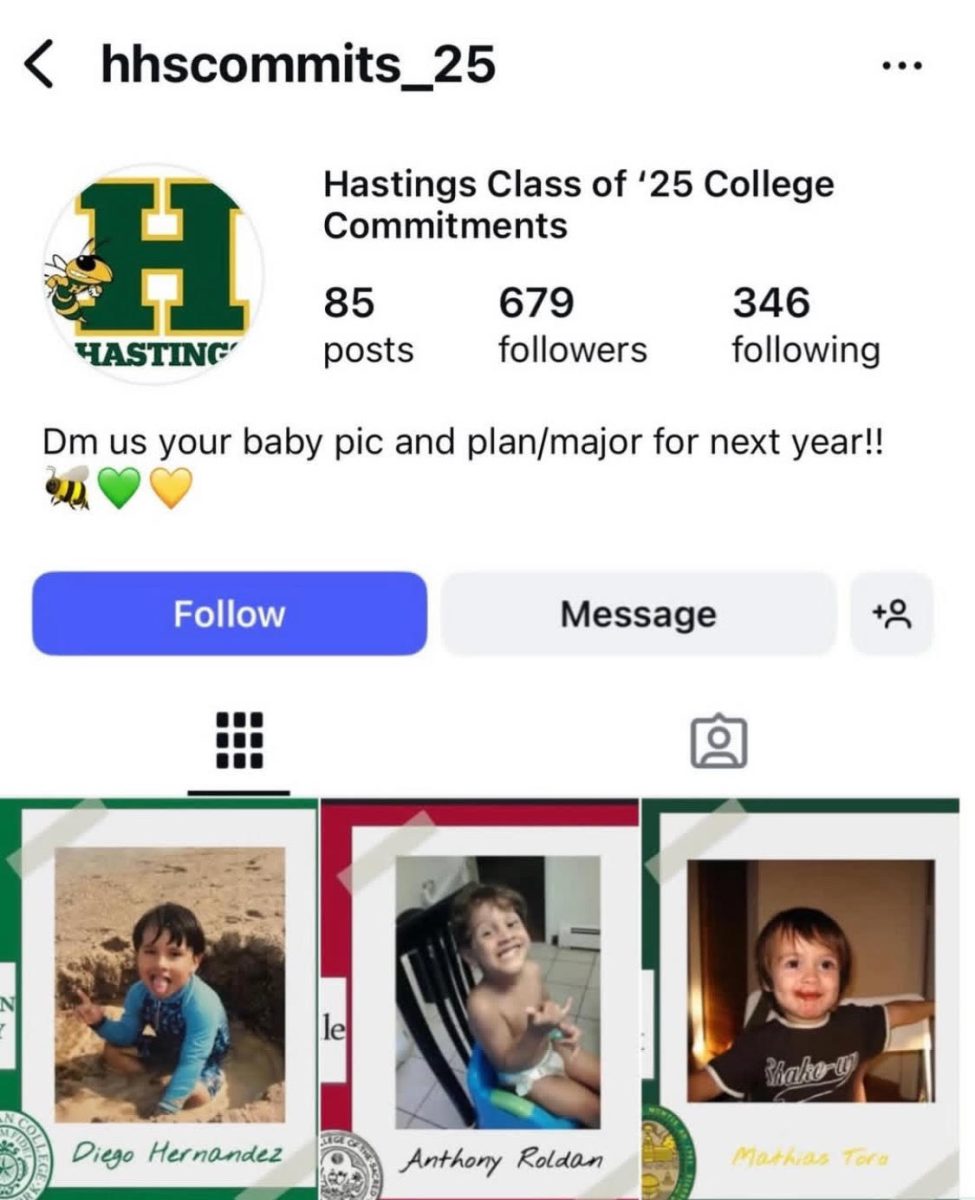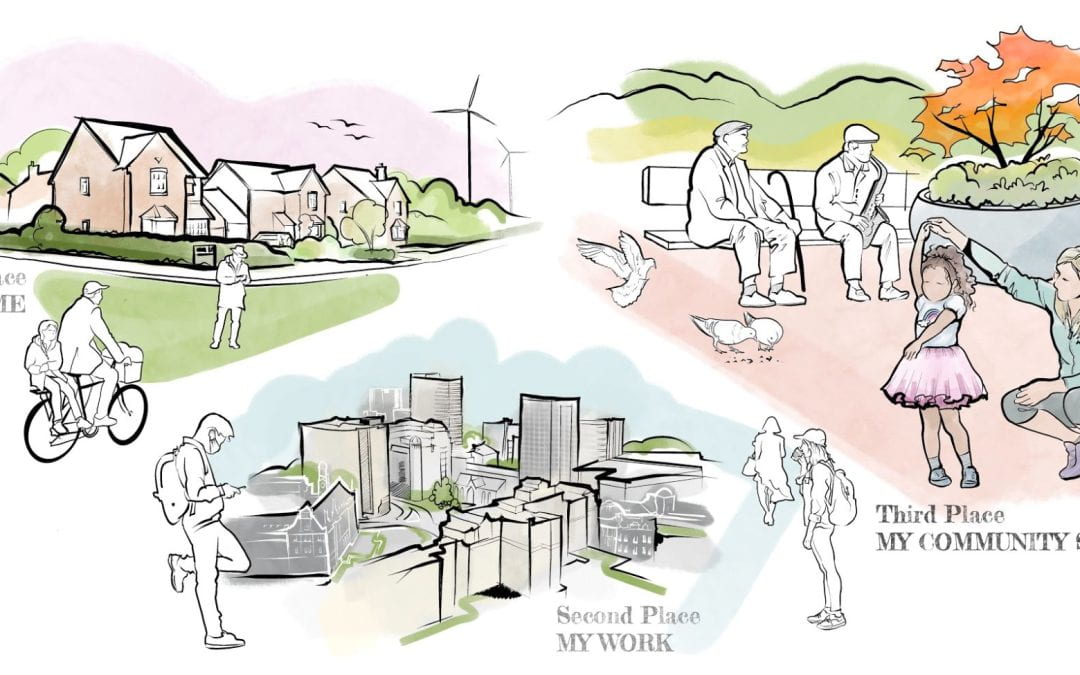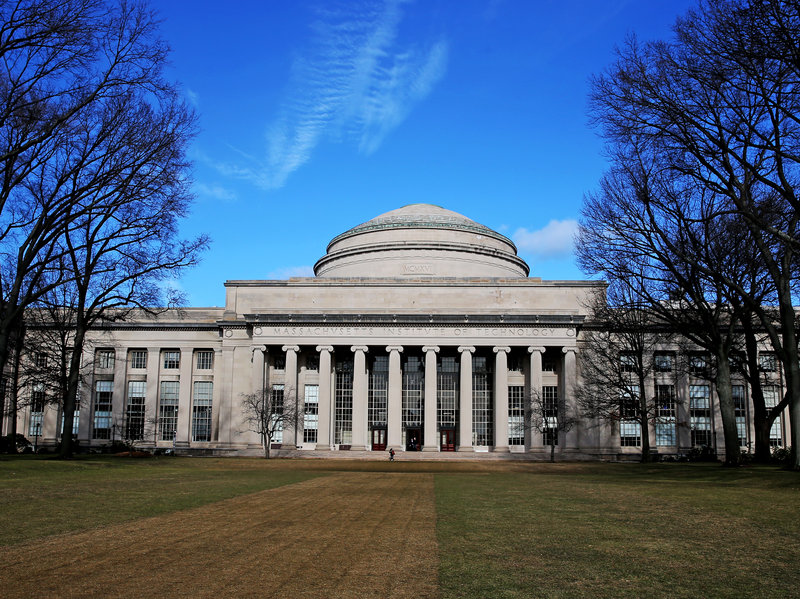Interviewing HHS Graduates About What College Has Been Like
February 10, 2021
Many recent Hastings graduates have had to tread on unfamiliar ground as they embarked on the “college experience,” which has been redefined by the COVID-19 pandemic. I reached out to some of our recent graduates to get a sense of how their expectations for college have changed.
College in a Pandemic
For Ani LeFevre, a sophomore at Prescott College, “My expectations for this year were honestly very low from the beginning because it’s hard to rely on the administration for help.” However, she was surprised to find “there were always things to do with friends, even if ‘doing’ something meant sitting in our house drawing or cooking.”
Reflecting on his freshman year pre-COVID-19, David Dayan, a sophomore at Cornell University, noted that there were multiple challenges he faced. “Freshman year was tough. The process of building a community is hard. In Hastings you have it from the time you’re five, it changes over time but you do have a sense of community, and then when you go to college you have to rebuild it all over again. So that was a challenge and it was a challenge to kind of see other people successfully do it and feeling like you were maybe lagging behind and like you hadn’t developed the same kind of community that others had.”
However, David points out, “the funny thing is that COVID-19 was almost an equalizer in some sense. Everyone had to go to some extra length to develop and maintain connections with people, everyone had to improvise and adapt with how they interact with their friends and with new people, so funnily enough, the social side almost got easier.”
David added, “As for separating COVID from just normal college stress, it’s hard at times. I think it was really challenging to say at times ‘Is this normal? Would I normally be feeling this way or is this exacerbated by current circumstances?’ But I think a lot of people had to have the perspective of like, ‘this is one of those semesters where you make it through in one piece, and you do all right, and that’s something to be proud of,’ that’s really important.”
For Kyle Gober, a freshman at Rutgers University, he thought that “transitioning to online class was easier than expected. I felt relatively comfortable with the infrastructure in place.”
Blaise Rohan, a sophomore at ___, was surprised that “besides social life, a lot of things were pretty normal” attending college during the pandemic, yet he also advised that HHS seniors “think about whether or not to go to school in person or to take a semester off and focus on something else.”
Ansen Novak, a freshman at Baruch College who is at home for his entire first year, said, “I would’ve rather waited one more year [and taken a gap year] to have a full four-year experience; most of my classes this semester were core entry classes that didn’t pertain to my major, and I was getting a lot of work for [them]. Basically, my stress came from getting workloads for things I hated having to do.”
He added that “I think the worst thing for me was having my college soccer season canceled until next year. Soccer is important to me, and it was one of the things I was really looking forward to. I was most surprised by how disappointed I ended up being. In many ways I didn’t feel like I was at school and that I was just doing pointless work.”
For Ben Zion, a freshman at the University of Florida, “the most difficult thing was living so far away from my family. Many of my college friends were able to go home whenever they wanted to, but I never had the option.”
Alex Grossman, a freshman at Syracuse University, said that he was “surprised by the amount of freedom we had even during COVID-19. It turns out high school life was much more structured, and there’s many more choices I have to make now with how to spend my time. One piece of advice I would offer to current seniors is to choose the school that you want the most/will fit in best, and don’t feel pressure from other people going to other places. The biggest source of stress for me was time management and figuring out how to balance classes, schoolwork, socializing, and other things like laundry and eating, and I was able to cope with stress through hanging out with and studying with my friends.”
Advice for HHS Seniors
David Dayan noted that writing and humanities-based courses at Cornell were “a breeze” and added, “academically, you don’t realize how hard you work at Hastings sometimes. It was a jump, but it wasn’t as much of a jump as it was for at least a lot of my classmates, especially in the humanities and writing-based courses.”
In terms of socializing, David added, “Don’t sweat it if things don’t feel organic all the time and if you don’t feel like relationships are being built organically and you feel like you kind of have to make an extra effort. Like you might almost feel like you’re intruding sometimes, and I think for me, I got the sense that a lot of other people had built communities before I had and then so I felt weird about kind of, like, trying to include myself in some of them. And in hindsight, from talking to people, other people’s webs and networks were marginally more developed than mine and they were happy to take me in and alter them and kind of connect with different people. So even if things don’t feel organic when you’re transitioning to college, academically, socially, everyone’s in the same boat and it’ll feel weird but if you make the effort it really can go a long way.”
For Ani LeFevre, “the most stressful thing—and I think what most people find the most stressful thing as of today—was the loneliness I felt. Even though I was able to see my friends outside of the classroom there were times where I felt alone and struggled to even understand why.”
If Ani LeFevre could offer any advice to HHS seniors attending college next year, she would say, “understand it’s going to be difficult, and not just in the beginning. There will be plenty of lows that you will go through and plenty of times where all [may] feel hopeless or pointless. But in order to regain your ‘mojo’ or whatever you wanna call it you shouldn’t deny those feelings. You should embrace them and allow them to serve their purpose because you are feeling them for a reason. Reach out to someone if you’re really struggling, whether that be to a family member or to a close friend or even to a stranger (just make sure you’re socially distancing if it is a stranger).”
Jiarui Hu, a sophomore at Cornell University, would offer this to high school seniors, “The first semester of my senior year was the most stressful, roughest, most annoying semester, ever. It was the hardest few months I think academically and in a mental health sense, I think I was just constantly running around and doing stuff but not really accomplishing anything. But going into senior year I would remind myself that this is the last year that you’re going to spend with all these people you’ve grown up with and this is the last time you’ll all be together; make sure to cherish that time and especially in your second semester it’s so important to focus on your friendships and relationships and other things that are not school. Forget about school, and forget about college for a while. Relax more because it really is the last time that you’re going to spend with that same group of people…What matters now isn’t going to matter in a few months when you all go your own ways. Time is precious and valuable.”
And once it’s time to actually step foot on campus, whether virtually or in person, Jiarui suggested, “It’s totally okay to take a step back and choose one or a few things to focus on in one semester…I hit higher highs and lower lows in every single aspect of college, and I feel like people hype it up. And there’s this image of college like ‘oh, you go to learn, but it’s all this fun and you make all these new friends.’ And it’s like ‘wow, this is what I’ve been waiting for my whole life.’ But in reality, it’s kind of broken up into smaller memories. And yes, I had an awesome [first] semester, I wouldn’t change it for the world. But there were also times when school was really hard, friendships were really hard. And there were times when I got to experience hardships that were harder than anything I had experienced before in my life and things I hadn’t experienced in high school.”


















